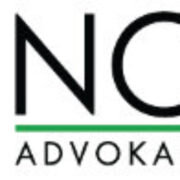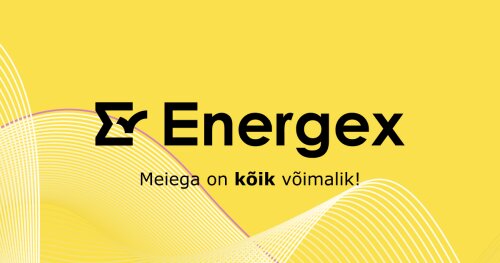Best E-commerce & Internet Law Lawyers in Estonia
Share your needs with us, get contacted by law firms.
Free. Takes 2 min.
Or refine your search by selecting a city:
List of the best lawyers in Estonia
About E-commerce & Internet Law in Estonia
Estonia is renowned for its advanced digital infrastructure, earning it the nickname "e-Estonia." This small Baltic nation has pioneered numerous digital innovations and has established a comprehensive legal framework governing E-commerce and Internet Law. The legal landscape in Estonia is designed to facilitate seamless online business operations while ensuring fair practice and consumer protection. The framework covers various areas including electronic contracts, data protection, intellectual property rights, and cybersecurity. Estonia’s legislation aligns with European Union directives, making it favorable for local and international e-commerce ventures.
Why You May Need a Lawyer
There are various circumstances where individuals or businesses might require legal assistance in the area of E-commerce & Internet Law in Estonia:
- Setting up an online business: Advice on complying with legal requirements.
- Contract disputes: Handling issues related to electronic contracts and agreements.
- Consumer rights: Navigating issues related to consumer protection laws and policies.
- Data protection: Ensuring compliance with GDPR and local data protection laws.
- Cybersecurity incidents: Legal assistance in the event of data breaches or cyber-attacks.
- Intellectual property: Protection of digital content and intellectual property rights.
- Taxation: Understanding e-commerce taxation requirements and obligations.
Local Laws Overview
Estonia’s approach to E-commerce & Internet Law is firmly rooted in its digital society initiative. Key aspects of these laws include:
- Information Society Services Act: Regulates service providers and ensures digital service quality.
- Personal Data Protection Act: Aligns with EU's GDPR, governing data processing and privacy.
- Electronic Communications Act: Governs digital communication services and network protection.
- Consumer Protection Act: Protects consumers in online transactions and ensures fair trade practices.
- Copyright Act: Covers protection of digital content and intellectual property rights.
Frequently Asked Questions
What is required to start an e-commerce business in Estonia?
You must register your business, comply with tax and consumer protection laws, and adhere to data protection regulations.
How does GDPR affect e-commerce businesses in Estonia?
GDPR imposes strict data protection and privacy requirements. Businesses must safeguard consumer data and obtain consent for data processing.
Are there specific data retention laws for online businesses in Estonia?
Yes, businesses must retain records in line with GDPR and local data protection requirements, ensuring transparency and consent.
What are the legal protections for online consumers in Estonia?
Consumers are protected under the Consumer Protection Act, which ensures fair treatment and rights to remedies in transactions.
How can I protect my intellectual property in Estonia?
Register trademarks, copyright, and patents through the Estonian Patent Office and use digital rights management practices.
What steps should I take in case of a data breach?
Report the breach to authorities, notify affected individuals, and mitigate damage in accordance with GDPR and local law.
Do I need a local office to operate an e-commerce business in Estonia?
No, Estonia allows you to operate remotely, as long as you comply with local laws and regulations.
What are the taxation requirements for e-commerce in Estonia?
E-commerce businesses must comply with VAT regulations and report sales accurately in line with the Taxation Act.
How can I resolve disputes with customers or suppliers online?
Utilize online dispute resolution mechanisms or seek legal counsel for formal proceedings if necessary.
Are there any specific cybersecurity laws in Estonia affecting e-commerce?
Yes, the Electronic Communications Act includes provisions for network protection and cybersecurity regulations.
Additional Resources
If you require further information or assistance, consider reaching out to the following resources:
- Estonian Data Protection Inspectorate: Offers guidance on GDPR and data protection laws.
- Consumer Protection Board: Provides consumer rights information and addresses complaints.
- Ministry of Economic Affairs and Communications: Governs e-commerce regulations and digital initiatives.
- Estonian Patent Office: Facilitates registrations of intellectual property rights.
- Law firms specializing in E-commerce & Internet Law: Offer expert legal advice and representation.
Next Steps
If you need legal assistance in the field of E-commerce & Internet Law in Estonia, consider taking the following steps:
- Identify your specific legal needs and gather relevant documentation.
- Consult with legal experts who specialize in internet and e-commerce law.
- Engage with local legal professionals or firms to ensure compliance and address disputes.
- Regularly update your knowledge of local laws and regulations to stay compliant.
Lawzana helps you find the best lawyers and law firms in Estonia through a curated and pre-screened list of qualified legal professionals. Our platform offers rankings and detailed profiles of attorneys and law firms, allowing you to compare based on practice areas, including E-commerce & Internet Law, experience, and client feedback.
Each profile includes a description of the firm's areas of practice, client reviews, team members and partners, year of establishment, spoken languages, office locations, contact information, social media presence, and any published articles or resources. Most firms on our platform speak English and are experienced in both local and international legal matters.
Get a quote from top-rated law firms in Estonia — quickly, securely, and without unnecessary hassle.
Disclaimer:
The information provided on this page is for general informational purposes only and does not constitute legal advice. While we strive to ensure the accuracy and relevance of the content, legal information may change over time, and interpretations of the law can vary. You should always consult with a qualified legal professional for advice specific to your situation.
We disclaim all liability for actions taken or not taken based on the content of this page. If you believe any information is incorrect or outdated, please contact us, and we will review and update it where appropriate.
Browse e-commerce & internet law law firms by city in Estonia
Refine your search by selecting a city.














